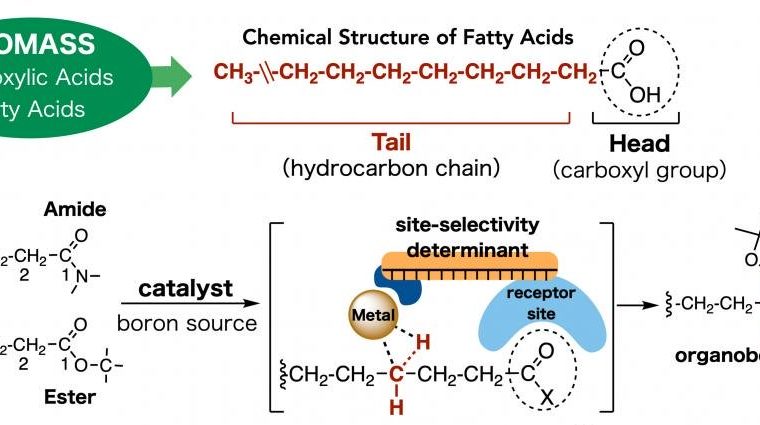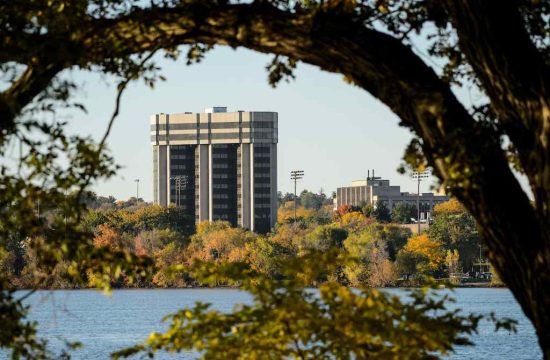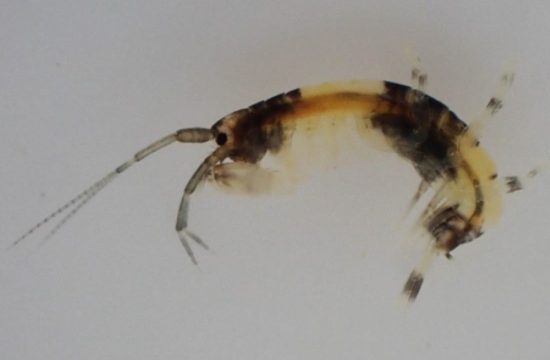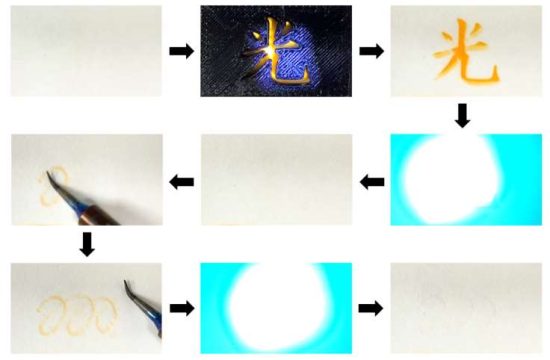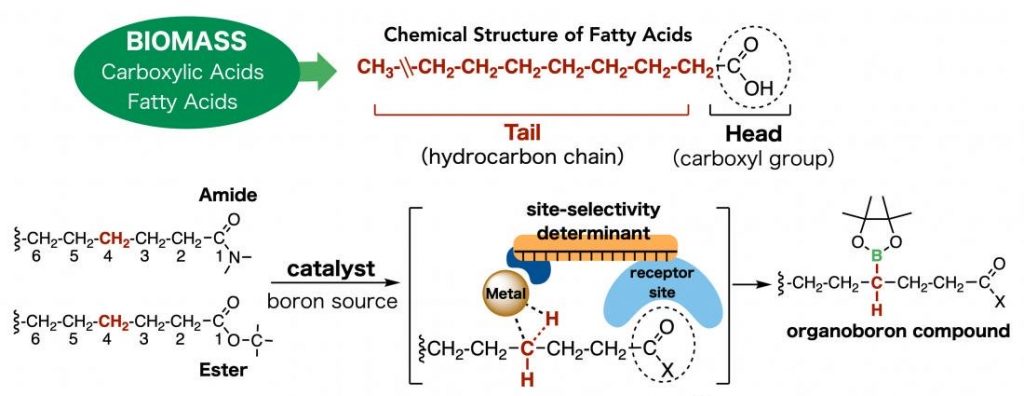
Hokkaido University WPI-ICReDD researchers developed a modular catalyst that can accurately modify fatty acid derivatives in a hitherto inaccessible position.
This enables the efficient production of valuable compounds from a renewable bioresource, whereas before we had to either rely on petroleum-derived resources or use complicated and costly methods.
Many pharmaceuticals and plastics consist of a backbone that is essentially a chain of carbon atoms with modifications within their hydrocarbon framework.
For their production, fatty acids are attractive raw material because they are easily accessible, renewable natural resources that consist of a chain of carbon atoms attached to a functional group called “carboxyl group.”
However, our ability to modify these chains has so far been limited to carbon atoms only one or two atoms away from the carboxyl group. Professor Masaya Sawamura of Hokkaido University’s Institute for Chemical Reaction Design and Discovery (WPI-ICReDD) explains, “The chemical materials obtained in this way are limited to those with fairly simple structures, and in order to synthesize useful compounds, multi-step processes are necessary.”


